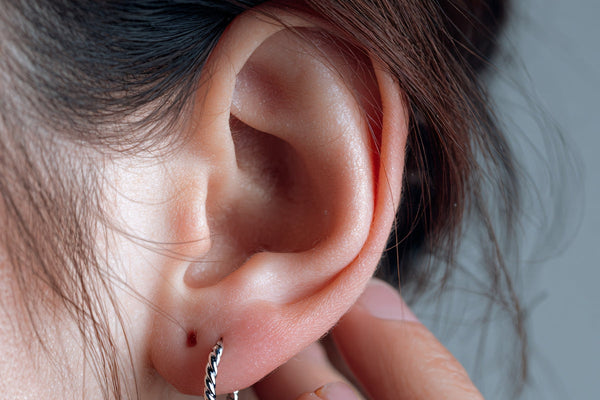
Hyperacusis is a condition that causes everyday sounds to seem uncomfortably loud or even painful. For some people, noises like running water, laughter, or clinking cups can feel overwhelming. While this sensitivity can be distressing, it’s important to know that with the right help and support, hyperacusis can be managed effectively.
At Leightons, we understand how difficult sound sensitivity can be - whether it’s affecting your daily comfort, work, or social life. Our audiologists are here to help you understand your symptoms, identify possible causes, and guide you towards the right professional care and management options.
What is hyperacusis?
Hyperacusis is a form of sound sensitivity where certain noises feel excessively loud or uncomfortable, even when they seem normal to others. It can affect one or both ears and may appear suddenly or develop gradually.
It’s not about hearing sounds “too well” - rather, it’s how the brain and hearing system respond to noise. In hyperacusis, the brain’s normal way of filtering loud sounds becomes oversensitive, so even moderate noise can feel intrusive.
Hyperacusis can vary in severity. For some, it’s a mild annoyance, while for others, it can interfere with everyday life, making simple sounds like doors closing or laughter difficult to tolerate.
What causes hyperacusis?
Hyperacusis can be caused by a range of factors that affect how the ear and brain process sound. Common causes include:
- Exposure to loud noises such as concerts, machinery, or explosions
- Ear conditions including tinnitus, hearing loss, or ear infections
- Head injury or concussion
- Recent ear surgery or trauma
- Neurological conditions (rarely)
- Stress or anxiety, which can heighten how sounds are perceived
In some cases, no clear cause is found. However, even when the reason isn’t obvious, there are still ways to manage and reduce sensitivity over time.
Common symptoms of hyperacusis
People with hyperacusis often describe sounds as being too sharp, loud, or painful. Symptoms may include:
- Discomfort or pain when exposed to everyday sounds
- Avoidance of noisy environments such as restaurants or busy roads
- Heightened awareness of certain noises, like clinking dishes or children’s voices
- Anxiety or stress linked to loud or unpredictable sounds
- Ringing in the ears (tinnitus), which sometimes occurs alongside hyperacusis
If you find yourself avoiding social situations or feeling anxious about noise, you’re not alone - and there are safe, effective ways to improve your comfort and quality of life.
Living with hyperacusis
Hyperacusis can have an emotional as well as a physical impact, but there are proven strategies to help manage it and reduce discomfort:
- Gradual sound exposure can retrain your ears and brain to respond more normally to everyday noises.
- Relaxation and stress management techniques - like breathing exercises or mindfulness - can reduce anxiety and improve tolerance.
- Avoid complete silence, as overprotecting your ears can make them more sensitive.
- Use ear protection only when necessary, such as in very loud environments.
Many people find that, with time and support, their tolerance to sound improves and daily life becomes easier.
How is hyperacusis treated?
There isn’t a single cure for hyperacusis, but several treatments can make a big difference:
- Sound therapy, which uses gentle, controlled sounds to help desensitise your hearing system
- Cognitive behavioural therapy (CBT) to manage anxiety and emotional responses to sound
- Tinnitus or sound generators that play soft background noise to reduce sensitivity
- Medical treatment if hyperacusis is linked to another ear condition such as infection or wax build-up
Treatment is highly individual and often combines both hearing and emotional support to achieve the best results.
How Leightons can help
At Leightons, we take a holistic approach to sound sensitivity and hearing health. Our audiologists can carry out free hearing assessments and sound sensitivity evaluations to understand what’s causing your discomfort.
If hyperacusis or another underlying condition is identified, we’ll explain your results clearly and refer you to an ENT specialist or tinnitus clinic for tailored treatment. We can also offer advice and coping strategies to help you manage symptoms day to day.
We’re here to help you feel more comfortable and confident in your hearing, with professional guidance every step of the way.
Book your free hearing assessment today and take the first step towards more comfortable listening.








